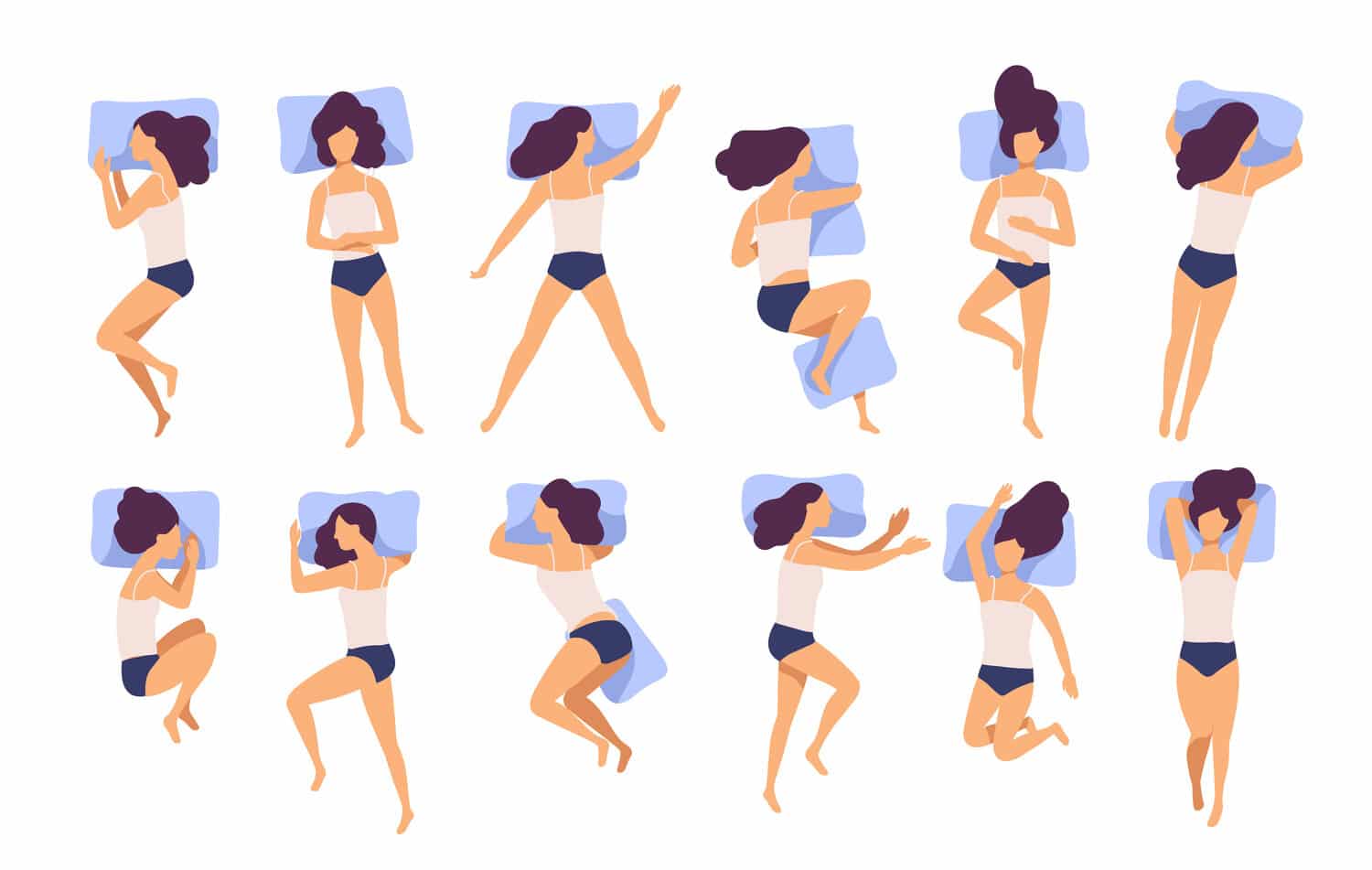- Your cart is empty
- Continue Shopping
Do Sleeping Positions Affect Your Health?

The various sleep positions — side, back, and stomach sleeping — all have pros and cons, depending on your age, health conditions, and personal preferences. They also become habitual, and while they may not directly affect your health (for the most part), they can affect your sleep patterns, which we do know have a direct impact on your overall health and well being.
The pros and cons of various sleeping positions
Stomach sleeping can give you some relief from snoring and sleep apnea, but it can also cause neck and back pain. Sleeping with your head turned in the same direction all night can cause cricks or soreness, especially if you’re using a thick pillow. For stomach sleeping, use a thin pillow to keep your head and neck in alignment, and try to change up your sleep position throughout the night.
Side sleeping is also helpful in reducing snoring or sleep apnea symptoms. However, side positions can put pressure on your knees, hips and shoulders. If you’re a side sleeper, try placing a pillow between your knees or wrap your arms around a body pillow to support some of your weight and take pressure off of your shoulders at night.
Back sleeping is easy on the spine if you have the right pillow. However, if you deal with sleep apnea or heartburn, this position can be uncomfortable and exacerbate your symptoms. More on how to counter that next.
When your sleep position can cause health concerns
Sometimes your sleep position does have an impact on your health, in that it can ease or worsen certain symptoms. Sleep apnea is a real health concern that is faced — and managed! — by many Americans. Unless you have a CPAP machine, sleeping on your back can make your sleep apnea worse. However, you can still get the benefits of sleeping on your back if you elevate your head slightly. An adjustable foundation, which allows you to raise the head of your bed, often helps people who suffer from sleep apnea by relieving the pressure of gravity on the throat and chest.
Similarly, acid reflux causes a great deal of discomfort at night. An adjustable foundation can also help in this situation. By raising the head of the bed, you’ll be able to sleep more comfortably.
How getting enough sleep affects your health
The bottom line is that sleep (or lack thereof) affects your health in some big ways. So, whether you’re sleeping on your stomach, side, back, or a combination of all three, try your best to get seven to eight hours of sleep per night on a regular basis.
If that’s not happening for you, and your mattress isn’t doing you any favors, come talk to the sleep experts at Mattress Man. We’ll put you in position to get your best night’s sleep yet.





